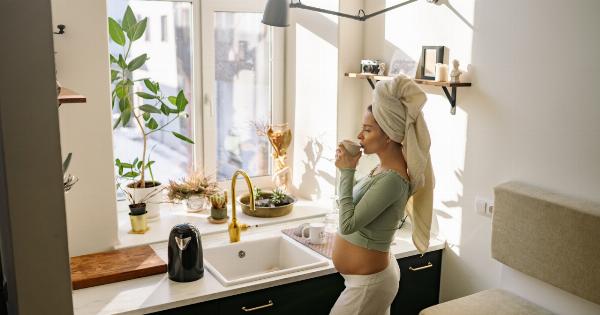Tea, the most widely consumed beverage in the world after water, is a healthy and refreshing drink. Pregnant women should be careful, however, about how much tea they consume.
We will discuss the most common types of tea, their benefits, and precautions that pregnant women should take.
Black tea
Black tea, the most popular type of tea, is high in caffeine, which may have side effects for pregnant women. Experts recommend that pregnant women limit their caffeine intake to 200 milligrams per day (about one cup of brewed coffee).
Drinking too much caffeine during pregnancy has been associated with an increased risk of miscarriage and premature birth. If you choose to drink black tea during pregnancy, it is advisable to limit your caffeine consumption to no more than two cups a day.
Green tea
Green tea is considered to be one of the healthiest beverages for pregnant women. It is packed with antioxidants that help to protect the body from harmful free radicals.
Green tea is also a great source of natural caffeine, which can help boost your energy levels during pregnancy. However, it is important to limit your caffeine intake to no more than 200 milligrams per day.
Herbal tea
Herbal teas are made from a variety of plants and herbs and do not contain caffeine. They are considered to be safe for pregnant women to drink. However, some herbs can have negative effects on pregnancy and should be avoided.
For example, some sources suggest that sage tea can bring on contractions and should be avoided during pregnancy. It is important to consult your doctor or a qualified herbalist before consuming any herbal tea during pregnancy.
Rooibos tea
Rooibos tea, a South African herbal tea, is caffeine-free and is considered a safe and healthy beverage for pregnant women. It is rich in antioxidants, which help to protect the body from harmful free radicals.
Rooibos tea is also a great source of vitamins and minerals that are essential for a healthy pregnancy.
Chamomile tea
Chamomile tea is a herbal tea made from the flowers of the chamomile plant. It is a caffeine-free tea and is considered to be safe for pregnant women to drink. Chamomile tea has a calming effect on the body and can help to reduce stress and anxiety.
Some studies suggest that chamomile tea may have a positive effect on sleep, which can be helpful for pregnant women who are struggling to get a good night’s rest.
Peppermint tea
Peppermint tea is a herbal tea made from the leaves of the peppermint plant. It is caffeine-free and is considered to be safe for pregnant women to drink.
Peppermint tea has a cooling effect on the body and can help to relieve digestive issues such as nausea, bloating, and heartburn that are common during pregnancy.
Hibiscus tea
Hibiscus tea is a herbal tea made from the flowers of the hibiscus plant. It is caffeine-free and is considered to be safe for pregnant women to drink.
Hibiscus tea is rich in vitamin C, which helps to boost the immune system, and can also help to lower blood pressure.
Lemon balm tea
Lemon balm tea is a herbal tea made from the leaves of the lemon balm plant. It is caffeine-free and is considered to be safe for pregnant women to drink. Lemon balm tea has a calming effect on the body and can help to reduce stress and anxiety.
Ginger tea
Ginger tea is a herbal tea made from the root of the ginger plant. It is considered to be safe for pregnant women to drink.
Ginger tea has a warming effect on the body and can help to relieve digestive issues such as nausea and vomiting that are common during pregnancy.
Conclusion
Tea can be a healthy and refreshing drink for pregnant women, as long as they consume it in moderation and with caution.
Pregnant women should consult their doctor or a qualified herbalist before drinking herbal tea to ensure that it is safe for them and their unborn baby. Drinking tea can be a delightful and healthy addition to your pregnancy journey.































